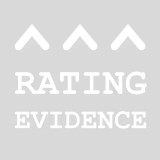S&P’s Issuer Credit Rating of Grenke AG
| Rating Type | Rating | Last Review Date | Credit Watch/ Outlook | Credit Watch/ Outlook Date |
|---|---|---|---|---|
| Local Currency LT | BBB+ | 10-Dec-2020 | Negative | 10-Dec-2020 |
| Local Currency ST | A-2 | 10-Dec-2020 | NM | 10-Dec-2020 |
| Foreign Currency LT | BBB+ | 10-Dec-2020 | Negative | 10-Dec-2020 |
| Foreign Currency ST | A-2 | 10-Dec-2020 | NM | 10-Dec-2020 |
“We have heard your call for more transparency regarding the resignation of our Board of Directors member, Mark Kindermann, loud and clear and would like to respond to it in detail”, writes Prof. Dr. Ernst-Moritz Lipp, Chairman of the Supervisory Board of GRENKE AG to “GRENKE investors”.
The alleged Grenke scandal has so far had little impact on the ratings. In its latest analysis, dated December 11, 2020 the rating agency Standard & Poor’s affirmed the Group’s counterparty credit rating BBB+ / A-2. S&P’s outlook on the long term rating is negative. With the 8th of October 2020, GBB Rating has confirmed the A-Rating but changed the outlook from “stable” to “negative” because of the current situation, says GRENKE on its website.
According to § 111 German Stock Corporation Act (Aktiengesetz, AktG), the supervisory board is to supervise the management board. The supervisory board may inspect and audit the books and records of the company as well as its assets, particularly the company’s cash and the inventory of securities and goods. It may also instruct individual members to perform these tasks, or may commission special experts for certain tasks. The supervisory board shall instruct the auditor of the annual accounts to audit the annual accounts and consolidated financial statements pursuant to section 290 of the Commercial Code (HGB). Moreover, the supervisory board may instruct that an external audit be performed of the substance of the non-financial statement or of the separate non-financial report (section 289b of the Commercial Code), or of the consolidated non-financial statement or the separate consolidated non-financial report (section 315b of the Commercial Code).
The Federal Financial Supervisory Authority’s (Bundesanstalt für Finanzdienstleistungsaufsicht, BaFin) criticism of Internal Audit and Compliance processes in the course of the ongoing audits by Mazars was the imminent reason for Mark Kindermann’s resignation. In the course of the ongoing audits by KPMG and Mazars, there had already been some qualitative indications and findings regarding the Internal Audit and Compliance organisation.
According to Ernst-Moritz Lipp, BaFin’s criticisms related to
- the quality of working papers,
- the ability of the Board of Directors to discard identified deficiencies,
- to the fact that Internal Audit did not initiate its own investigation into the Viceroy allegations,
- the quantitative staffing of Internal Audit, and
- to Internal Audit’s restricted access to certain company confidential information until the beginning of 2020,
- procedural weaknesses in the documentation of related parties at the Compliance function,
- insufficient traceability of updates to the Compliance manual,
- questions about the metrics for assessing compliance risks,
- insufficient documentation of the Compliance function’s written annual reports, and, again,
- inadequate staffing of the Compliance function.
The Supervisory Board, reports its Chairman, discussed the points of criticism and possible consequences with Mark Kindermann after his deadline to submit comments had expired. As a result, Mark Kindermann resigned.
“The uncertainty that has prevailed since September is weighing heavily on our stock and bonds”, admits Ernst-Moritz Lipp. ” The audits are also requiring considerable management and personnel capacities from the company. It is a top priority for the company that we continue and conclude the ongoing audits swiftly. Naturally, we are consistently addressing the findings of the audits and further refining the processes.”
The Chairman of the Supervisory Board of GRENKE AG reports on what has already been done in recent months: “Last October, for example, we transferred the Internal Audit function from Mark Kindermann to CEO Antje Leminsky, and at the beginning of 2021 we transferred the Compliance function to Isabel Rösler, our new Chief Risk Officer (CRO). In addition, suitably qualified personnel are being sought for both Internal Audit and Compliance, because we want to expand the workforce in the short term.”
In the German two-tier board system there is an executive board (all executive directors) and a separate supervisory board (all non-executive directors). The chairman of the supervisory board is the equivalent of the chairman of a single-tier board, while the chairman of the management board is reckoned as the company’s CEO or managing director. These positions are almost always held by separate people. According to Aktiengesetz, supervisory board oversees and appoints the members of the management board and must approve major business decisions. The supervisory board, in theory, is intended to provide a monitoring role. The question therefore arises as to whether the line between supervision and management has already been exceeded at Grenke.
“Since December,” writes Ernst-Moritz Lipp to Grenke investors, “we have been working with an independent consulting firm to review the processes for Internal Audit and Compliance and further develop both areas.”
“Further,” writes Ernst-Moritz Lipp, “the Supervisory Board has decided to reallocate Mark Kindermann’s remaining responsibilities as follows: Antje Leminsky, Chairwoman of the Board of Directors, will assume responsibility for Human Resources. Isabel Rösler will also take over key administrative functions in the back office with immediate effect. Sebastian Hirsch, who was appointed Chief Financial Officer (CFO) in October 2020, will additionally be given responsibility for Group Accounting. This step would have been taken anyway after the publication of the annual financial statements and has now been brought forward.” The statements made by the chairman of the supervisory board give an idea of the extent to which the supervisory board itself has assumed control and thus responsibility.
“We also understand that you have further questions and in particular would like to know when the audits will be completed.” As the timetable is largely determined by the auditors, Ernst-Moritz Lipp admits that he is currently unable to make any binding statements on this matter. According to Section 111 (6) AktG the members of the supervisory board may not have others perform the tasks incumbent on them.
According to Section 111 (4) AktG the measures to be taken by the management may not be transferred to the supervisory board. However, certain types of business transactions might only be implemented with the supervisory board’s consent. Where the supervisory board refuses to grant such consent, the management board may demand that the general meeting adopt a resolution concerning such consent.



















